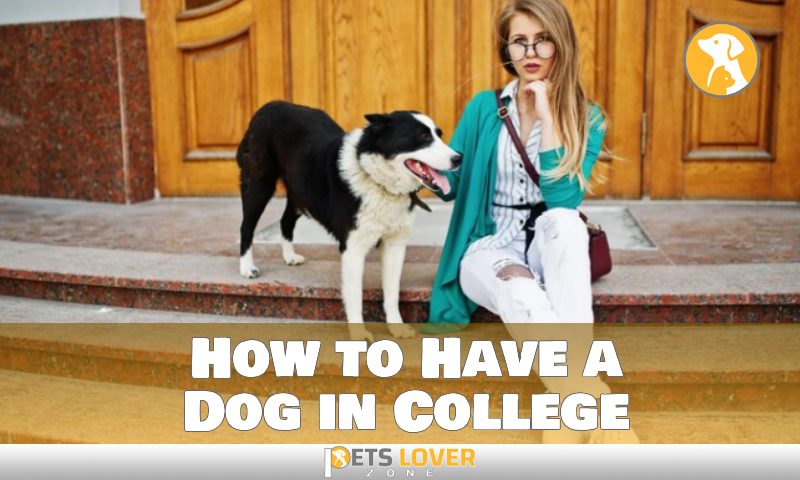You’ve just welcomed a litter of puppies into your family, and you’re eager to meet them and show your love—but should you? Can you even touch newborn puppies, or will that cause them harm?
The answer is a little bit complicated. The truth is, newborn puppies need to be handled with care and caution. That said, if done properly, it can be safe to touch them—but only with clean hands.
In this guide, I’ll give you the complete lowdown on the dos and don’ts of handling newborn puppies. I’ll also cover how to properly care for them during their first few weeks of life so that they can grow up healthy. So if you want to introduce yourself to your newest little family members without causing any harm.
Should You Handle Newborn Puppies?
It’s understandable to want to coo at and touch a newborn puppy, but unfortunately, that’s not the best thing for their health and safety. It’s important to remember that puppies are fragile and need to be well cared for before they can handle human contact.
So when is it okay to handle a newborn puppy? Generally, you should wait until the puppies are around 3 weeks old before picking them up. By this point in their lives, puppies are growing rapidly and have developed enough to withstand gentle handling from you. Additionally, it’s a good idea to limit the handling of newborn puppies to only you or other family members so that the puppies do not become too used to being touched by strangers.
Finally, it’s important not to separate any puppies from their mother until they reach 8 weeks old. This is when they will have the necessary vaccinations and treatments needed for them to survive on their own without their mom’s help. Until then, make sure mom remains with her litter so she can continue caring for her little ones in their most vulnerable stage of life.
How Soon Can Puppies Be Touched After Birth?
It’s natural to be excited about your newborn puppies, but it is also important to wait until the time is right before touching them. Although you may be tempted to hold them immediately after birth, it’s essential to wait until the puppies are at least a few weeks old. That said, you can still enjoy moments of physical closeness with the newborn puppies while they’re still in their nest.
Before doing so, however, make sure that your hands are clean and dry. It is recommended that you wear a pair of disposable gloves when handling newborn puppies and avoid any unnecessary touching or movement. Puppies should remain in their nest until they’re at least 3 weeks old and their eyes have opened, as this will help them get stronger and healthier before moving out of their nest.
After they reach this milestone, you can then begin introducing gentle handling sessions to get them used to human interaction. With patience, care, and lots of love, you can create an enriching experience for both you and the newborn puppies.
Proper Way to Pick Up and Hold a Newborn Puppy
You’re probably wondering, “How do I pick up and hold a newborn puppy without hurting them?”
Well, the points to remember are simple – never grab a pup by its neck or tail. Instead, hold puppies with both hands around the chest and back legs. This way, you’ll give the pups enough support while still being gentle with them. Make sure to always use clean hands/gloves when handling any newborn puppies.
It’s important to be careful when handling any newborn puppies—their bones are a lot more delicate than an adult dog’s bones. And if you support their chests correctly, it will help them settle quickly and feel safe in your arms.
Remember: Never grab the pup by its neck or tail; hold them under the chest and around its back legs for support. And always keep your hands or gloves clean.
Things to Look Out for When Touching Newborn Puppies
When it comes to touching newborn puppies, you should always keep an eye out for a few things. Firstly, you need to make sure that the puppy is comfortable, not cold or hot. Newborn puppies are unable to maintain their own body temperature, so they really need to be kept warm with blankets, pads, or even a heat lamp if their mother isn’t around.
Secondly, it’s important to be aware that newborn puppies are incredibly vulnerable to illness until they are 5-6 weeks old. They haven’t had the chance to build up much of an immune system yet, so even the smallest germ can quickly cause infection. This means that it’s best not to take them too far away from their mother or littermates, if possible.
Finally, you need to consider how much you should handle newborn puppies. Too much handling can put additional stress on them and increase the chance of them developing an infection or illness. When handling a puppy for any reason, make sure you keep contact time minimal and use clean hands at all times.
Keeping Newborn Puppies Warm When Touching Them
Whether you touch newborn puppies or not, it’s important to keep them warm. In the first four days, you should aim to maintain an environmental temperature of 85-90°F (29.5-32°C). This can be achieved by using heating pads and/or keeping the puppies close to a heat source such as a space heater or a warm water bottle.
It’s important to lower this temperature once they reach one week old: 80°F (26.7°C) is the recommended temperature until they’re around two weeks old, after which this can be dropped again to 72°F (22.2°C). Remember that newborn puppies can’t regulate their body temperature, so it’s up to you to make sure your home or whelping box is set at a comfortable and safe temperature.
How Often Should You Feed Newborn Puppies
If you have newborn puppies who have been orphaned, it’s important that they are fed often. You should be feeding them every 2-4 hours and should plan to do it at least 4 times per day. Each puppy should consume a minimum of 2 tablespoons of formula for every 4 ounces of body weight every 3-4 hours.
It can be a lot of work, but for orphaned puppies, you need to make sure that their nutrition levels stay consistent throughout the day. The more consistent their diet, the better their chance of surviving to adulthood.
You also need to make sure that the puppies always have access to fresh, clean drinking water and are kept in a warm environment; any drastic change in temperature could put their lives at risk.
Stimulating Newborn Puppies to Go to the Bathroom After Touching
When it comes to taking care of newborn puppies, you need to remember that although you can touch them, you might need to stimulate them for them to go to the bathroom.
If the mother isn’t present, she won’t be able to lick her puppies, which is essential for stimulating them. So if you are going to touch your puppies, be sure to use the tips below:
Rubbed with a Cloth
You can rub the puppy with a soft cloth or towel that has been rubbed against the mother’s genital area. This will leave behind her scent and should stimulate your puppy’s urge to go potty.
Buried in Sawdust or Hay
Another option is to bury the puppy in sawdust or hay that has been soiled by its siblings. Again, this will leave behind the mother’s scent and trail off any further stimulation needed for potty time.
Nuzzled Between Each Other
When caring for newborn puppies, it also helps when they remain nuzzled against each other since touching stimulates their urge to eliminate waste. Keeping newborn puppies together keeps their temperature up and allows them comfort while they wait for their mother’s return.
Bathing and Grooming Newborn Puppies: What You Need to Know
You might be wondering when it’s safe to bathe your puppies. Most puppies don’t need a bath at all for the first 4 weeks, as the whelping box helps keep them clean. It’s important to avoid over-bathing, as puppies’ skin and coats are still sensitive, and even a mild shampoo can irritate them.
If you feel like cleaning up your puppies and they absolutely have to have a bath, wait until they’re at least four weeks old before doing so. It’s better to wait until they’re at least three months old before bathing them, when their fur is thicker and their skin is more mature. To make sure you’re properly caring for the puppies during bathing, follow these steps:
- Make sure the water is lukewarm—not too hot or too cold—before immersing them.
- Make sure to only use shampoos formulated for puppies—and even then sparingly—and completely rinse off any residue after you’ve finished washing them.
- Towel dry your puppy instead of using a blow dryer in order to avoid accidental burning or dehydration due to dry air blowing on their skin for too long.
- Finally, make sure you keep an eye on your puppy afterward; if he/she starts scratching more than usual or has any signs of skin irritation, call your veterinarian for advice immediately.
How to Care for Puppies That Have Been Touched
It’s true that you can touch newborn puppies, but it should be done with the utmost care. When you first start handling them, it’s important that you interact slowly and gently. This will help them become accustomed to the human touch and let them understand that being handled can be a pleasant experience.
Keep It Up
Once they are comfortable, try to touch and handle them every day. Caress their little heads and backs, and let them know they’re safe and secure when you are around. The more often they are touched in an enjoyable way, the sooner they will accept being handled by humans.
Aim for Comfort
Be careful where your hands wander too—some areas may still be tender, so avoid the extremities like their ears, paws, tail, and belly until they have grown bigger. Also, remember that puppies don’t have much control over their bodies yet, so be aware of any signs that your interaction is not something they enjoy. If this happens, slow down or even stop until you can see them relax again.
By gradually introducing puppies to human contact and making sure it is a positive experience for them, your bond is sure to thrive over time.
Common Health Issues in Newborn Puppies and When to Call a Vet
Although puppies are incredibly cute and cuddly, it’s important that you don’t forget about the risks associated with newborn puppies. One of the common health issues that you need to be aware of is neonatal disease, which includes bacterial and viral infections, as well as parasites. Clinical signs in neonatal puppies can include respiratory distress, abdominal distension, and pain, so if you notice any of these symptoms in your puppies, then you should seek medical attention right away.
Puppies are particularly susceptible to disease and infection due to their weakened immune systems, which is why it’s especially important to keep their environment clean and free from harmful bacteria. You should also be careful not to over-stimulate them, as they are vulnerable to sudden temperature regulation issues with too much handling or change in environment. Be sure to call a vet if any of the above occurs or if you notice any other worrisome signs or symptoms in your puppies.
People Also Like: Can’t Feel Puppies in a Pregnant Dog Explained
Conclusion
In conclusion, when it comes to caring for newborn puppies, you should use extreme caution before touching them. It is important to allow the mother dog to handle the majority of the pup’s care in order to ensure the pups are receiving adequate nourishment and that their immune systems are being developed properly.
If you must handle the puppies, do so with gentle, clean hands, and make sure you have consulted a veterinarian beforehand. Ensure that the puppies are kept in a warm, safe, and hygienic environment and that the mother has access to the necessary nutrients to care for her litter. It can be incredibly rewarding to care for newborn puppies, and by following the advice above, you can make sure that the experience is safe and positive for both you and the puppies.





